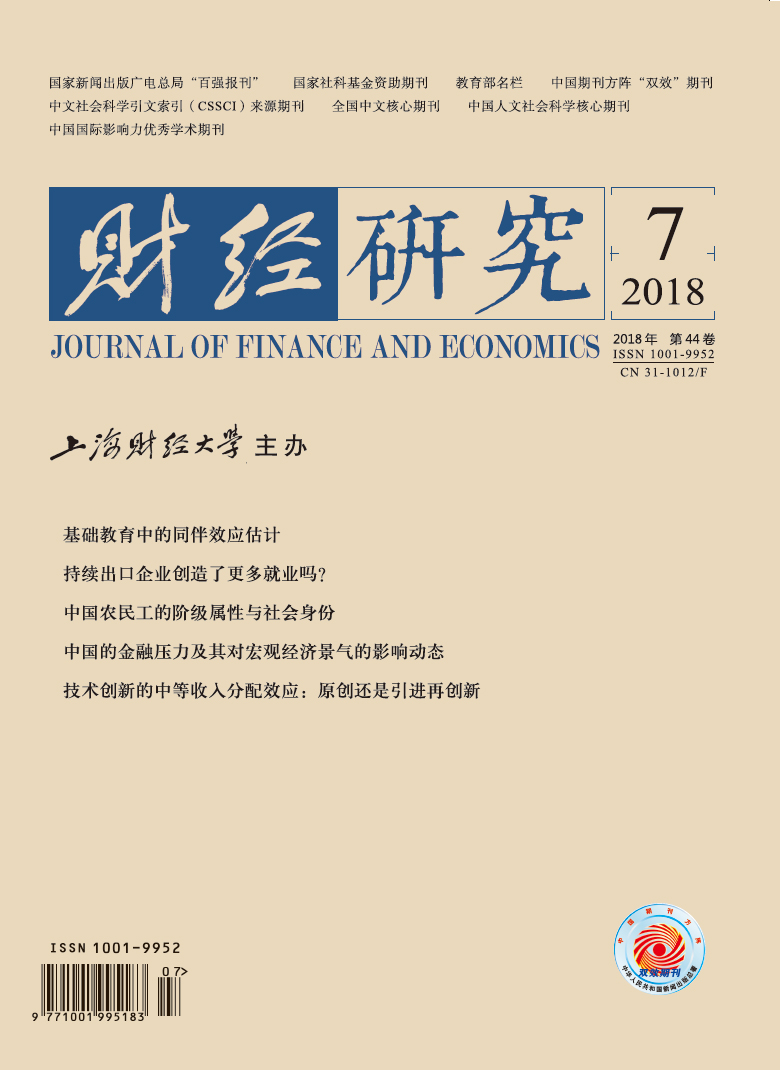互联网的广泛应用为减小性别工资差距带来了新的可能。基于中国家庭追踪调查(CFPS)数据,文章考察了互联网使用及偏好对性别工资的影响作用,利用RIF回归分解的方法分析了互联网对性别工资差距的影响。结果表明:第一,使用互联网促进了性别工资的增长,并且对于不同婚姻状况、年龄和学历的就业者而言,这种影响作用存在差异;第二,上网时长与性别工资之间呈“倒U形”关系,并且男性无论在家还是在工作场所上网,均对工资有正向影响,而女性在工作场所上网对工资有显著影响;第三,利用网络收发邮件和信息获取能够提高男性工资,但娱乐游戏会减小男性工资,而上网专业学习能够提高女性工资;第四,使用互联网能够减小低收入层和中高收入层就业者的性别工资差距,但却加大了高收入层就业者的性别工资差距。据此文章建议,为减小性别工资差距,不仅要强化网络建设和扩大教育培训,增加女性互联网使用率和使用技能,而且要发展新经济新业态,升级产业结构,减小职业性别隔离。
互联网使用能否减小性别工资差距?——基于CFPS数据的经验分析
摘要
参考文献
11 Agarwal R, Animesh A, Prasad K. Social interactions and the "Digital Divide": Explaining variations in internet use[J]. Information Systems Research, 2009, 20(2): 277-294. DOI:10.1287/isre.1080.0194
12 Atasoy H. The effects of broadband internet expansion on labor market outcomes[J]. ILR Review, 2013, 66(2): 315-345. DOI:10.1177/001979391306600202
13 Banerjee S, Parai R, Parai A K. Computer use and wage differentials: US and foreign born male and female workers[J]. Applied Economics Letters, 2007, 14(6): 409-413. DOI:10.1080/13504850500447307
15 DiMaggio P, Bonikowski B. Make money surfing the web? The impact of internet use on the earnings of U.S. workers[J]. American Sociological Review, 2008, 73(2): 227-250. DOI:10.1177/000312240807300203
16 Firpo S, Fortin N M, Lemieux T. Unconditional quantile regressions[J]. Econometrica, 2009, 77(3): 953-973. DOI:10.3982/ECTA6822
17 Herr J L, Wolfram C D. Work environment and opt-out rates at motherhood across high-education career paths[J]. ILR Review, 2012, 65(4): 928-950. DOI:10.1177/001979391206500407
18 Krueger A B. How computers have changed the wage structure: Evidence from microdata, 1984-1989[J]. The Quarterly Journal of Economics, 1993, 108(1): 33-60. DOI:10.2307/2118494
20 Moreno-Galbis E, Wolff F C. New technologies and the gender wage gap: Evidence from France[J]. Relations Industrielles, 2008, 63(2): 317-339. DOI:10.7202/018578ar
21 Postar D R. The effect of high-speed internet access on the gender wage gap[D]. Washington: Georgetown University, 2013.
22 Wasserman I M, Richmond-Abbott M. Gender and the internet: Causes of variation in access, level, and scope of use[J]. Social Science Quarterly, 2005, 86(1): 252-270. DOI:10.1111/ssqu.2005.86.issue-1
23 Weinberg B A. Computer use and the demand for female workers[J]. ILR Review, 2000, 53(2): 290-308. DOI:10.1177/001979390005300206
引用本文
毛宇飞, 曾湘泉, 胡文馨. 互联网使用能否减小性别工资差距?——基于CFPS数据的经验分析[J]. 财经研究, 2018, 44(7): 33-45.
导出参考文献,格式为:
下一篇:家庭教育支出存在邻里效应吗?





 7751
7751  12790
12790

